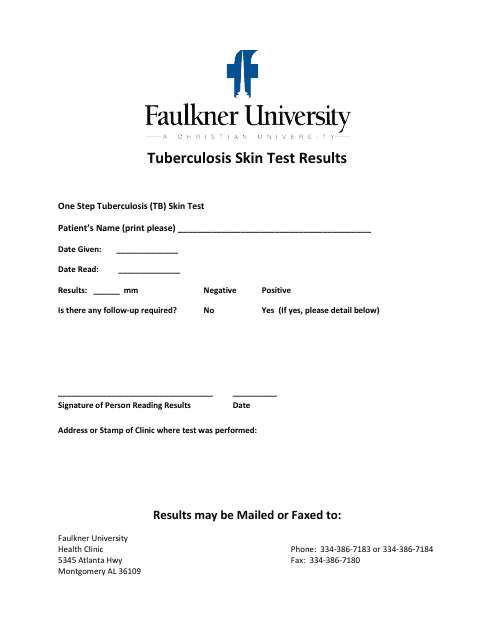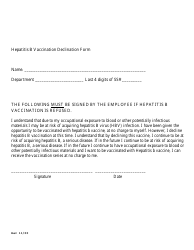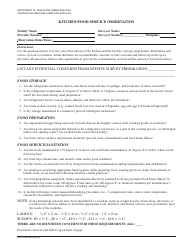Tuberculosis Skin Test Results - Faulkner University - Alabama
The Tuberculosis Skin Test Results at Faulkner University in Alabama are for screening and diagnosing tuberculosis infection. It determines if a person has been exposed to the bacteria that causes tuberculosis.
FAQ
Q: What is a tuberculosis skin test?
A: A tuberculosis skin test is a method used to determine if a person has been infected with the bacteria that can cause tuberculosis.
Q: How is a tuberculosis skin test conducted?
A: A tuberculosis skin test involves injecting a small amount of tuberculin into the skin, usually on the forearm. The injection site is then checked for a reaction after a certain period of time.
Q: What does a positive tuberculosis skin test result mean?
A: A positive tuberculosis skin test result means that a person has been exposed to the bacteria that causes tuberculosis. It does not necessarily mean that they have active tuberculosis.
Q: What does a negative tuberculosis skin test result mean?
A: A negative tuberculosis skin test result means that a person has not been infected with the bacteria that causes tuberculosis. However, it does not rule out the possibility of a recent infection.
Q: What should I do if I have a positive tuberculosis skin test result?
A: If you have a positive tuberculosis skin test result, you should follow up with a healthcare provider. They will determine if further testing or treatment is necessary.
Q: Are tuberculosis skin tests required for admission to Faulkner University in Alabama?
A: The admission requirements for Faulkner University in Alabama may vary. It is best to contact the university directly to inquire about any tuberculosis testing requirements.
Q: Can a tuberculosis skin test result be affected by previous tuberculosis vaccination?
A: Yes, previous tuberculosis vaccination can affect the result of a tuberculosis skin test. It can cause a positive reaction even if a person is not infected with the bacteria.
Q: Can a tuberculosis skin test cause tuberculosis?
A: No, a tuberculosis skin test cannot cause tuberculosis. It is a diagnostic tool used to determine if a person has been infected with the bacteria that causes tuberculosis.



